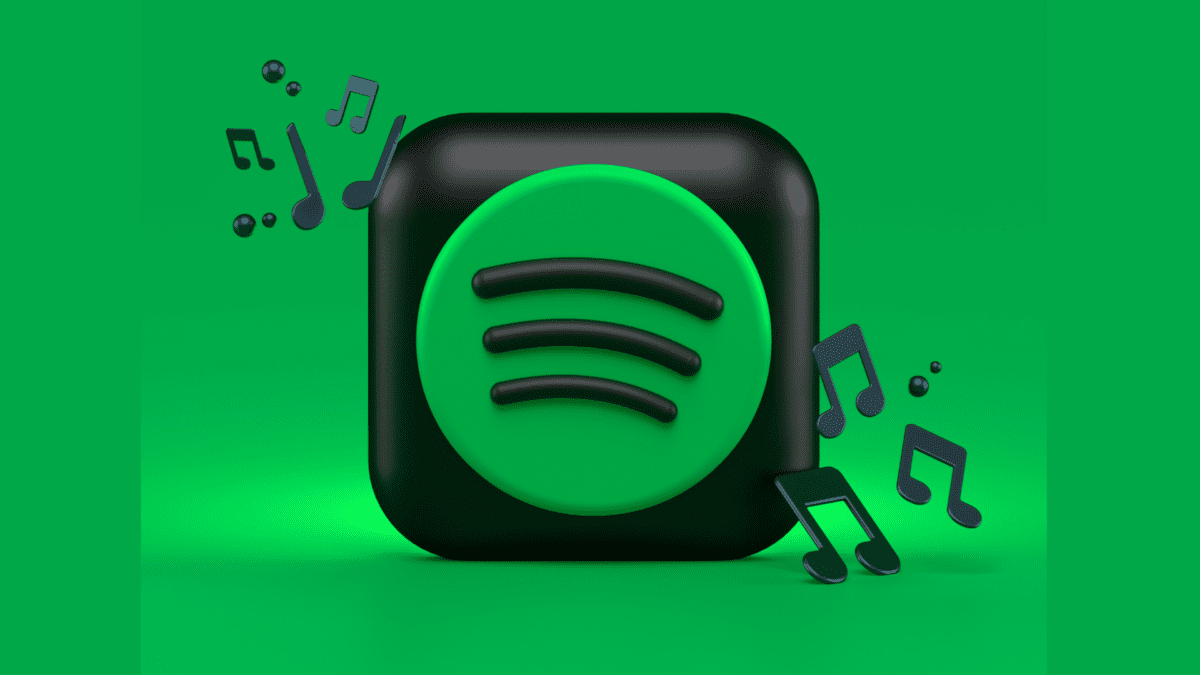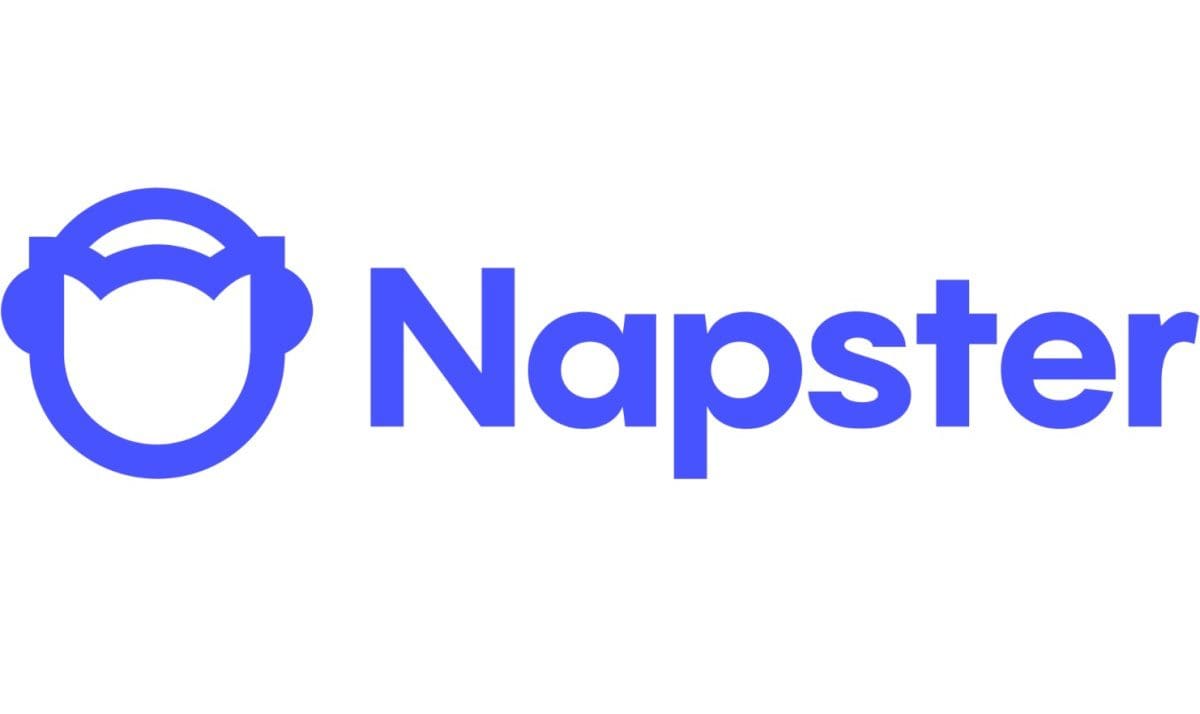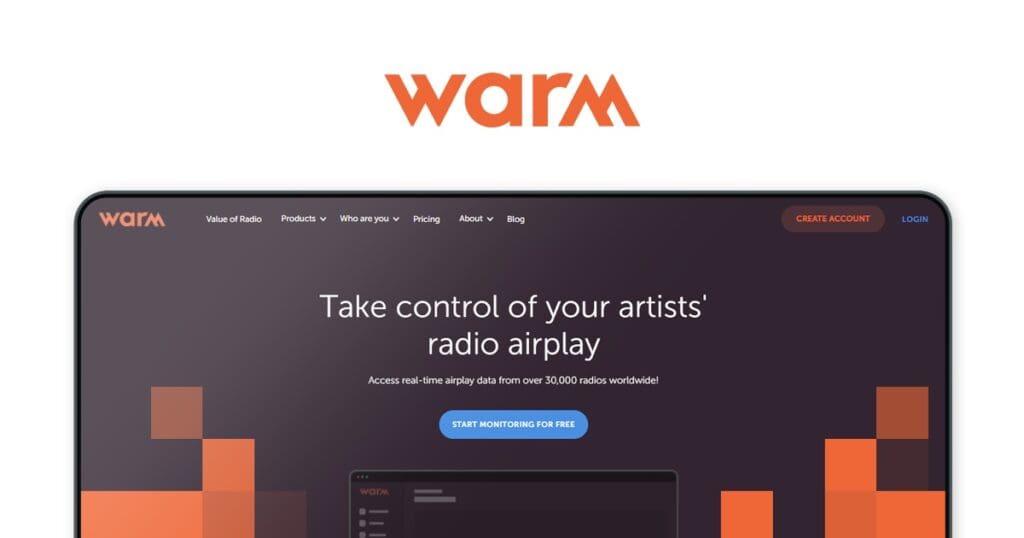
What Is Music Tracking?
Music tracking on the radio is a useful tool for many different purposes. Getting insight into your radio airplay is simply a way of seeing who is consuming your music. In addition, where your fans and listeners are located. Once you have this information, there are many ways to take advantage of it. Moreover, use it to take your career to the next level. In this article, we give you 8 quick tips on how best to use WARM’s radio-tracking.
Use Music Tracking To Your Advantage
1. Be Your Own Radio Promoter
Professional radio promoters are expensive. But, you can also choose to do your own radio promotion and using WARM will make you much more effective. For example, when looking for radio stations to pitch your music to, you could:
a) Identify stations that have already played your music. As they’ve already played your music there is a good chance they will be open to receiving more from you.
b) Do a search for artists whose music is similar to yours and see where they are getting airplay. This will quickly provide you with a list of relevant radio stations to target. Spy on your competitors, so to say.
2. Control Your Royalty Collection
Tracking exactly where in the world your songs are being played. This will give you information that you can take to your performing rights organization. Therefore it will help you determine if your royalty payouts are correct. Also give you more leverage if you feel there are inconsistencies.
3. Improve Tour Booking
Use data from WARM to get insight into where people are consuming your music and use it to target countries and cities when planning your tour. Organizing concerts is a risky business. The more evidence you can bring the concert promoter showing that people in his/her area are actually consuming your music, the more willing the promoter will be to take a risk on booking you.
4. Social Media Targeting
Identifying which countries and cities have your music in radio rotation can be used to target your social media efforts in those areas as well. Music is consumed differently depending on genre, country, age group etc. Use data from music tracking on the radio and compare it to data from streaming and social media to get a fuller and deeper picture of your fanbase.
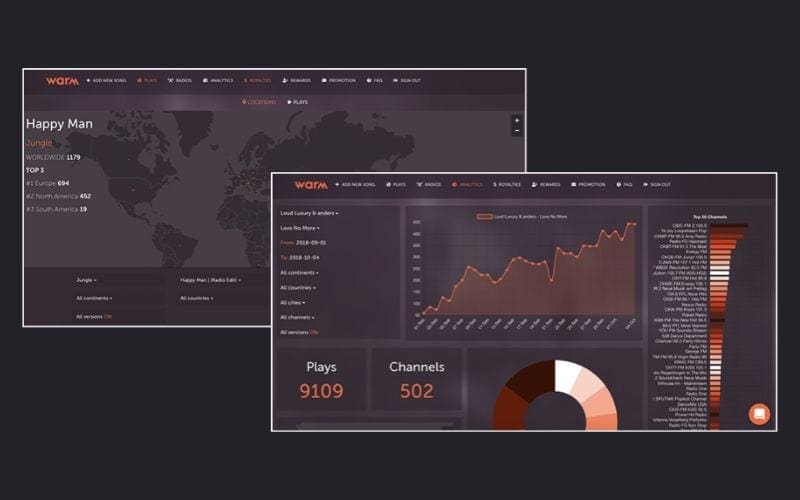
5. Stand Out From The Competition
There is more music out there than ever to choose from which means you must be aggressive in your promotion. Your radio data can be used to convince streaming curators to add you to their playlists and vice versa. Also, consider using your airplay insights to negotiate with record labels about new and better deals.
6. Tell the World About Your Radio Plays
Sharing information about your radio airplay on social media etc. not only increases your credibility but also supports the radio station at the same time. Radio programmers and DJs love this and will make them like you even more.
7. Control Your Radio Promoter
Radio promoters can definitely be worth the cost if they get you on the radio, it’s important to know that your money is being put to good use. With WARM, it’s easy to determine if your radio promoter is successfully pitching your song(s) to radio.
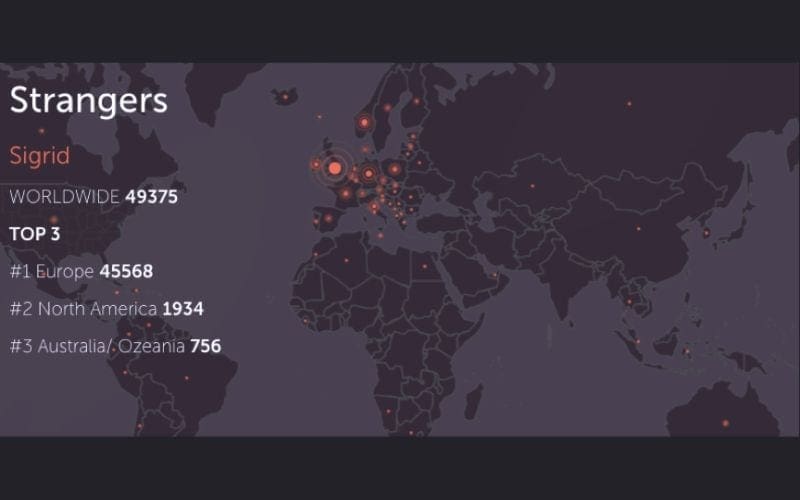
8. Book a Radio Tour
Connecting with radio stations in person is a great way to build relationships. See if you can do a tour of radio stations giving interviews and perhaps even in-studio performances. This will strengthen your relationship and help keep you in rotation.
What Are The Benefits Of Music Tracking?
There are many benefits of music tracking on the radio, which include:
1. Increased listener engagement – Music tracking allows radio stations to better understand their audience and tailor their programming to their listeners’ preferences.
2. Increased advertising revenue – Music tracking allows radio stations to target specific audiences with more effective advertising campaigns.
3. Improved music selection – Music tracking allows radio stations to select music that is more likely to be popular with their listeners.
4. Improved music scheduling – Music tracking allows radio stations to schedule music that is more likely to be heard by their listeners.
5. Increased radio station visibility – Music tracking allows radio stations to be more visible to potential listeners.
Is Your Music Is Playing On The Radio?
Do you want to know if your music is been played on the radio? Track Your Song using this link!
Summary – Music Tracking
So you see how music tracking on the radio can measure the popularity of songs. Music tracking systems monitor radio airplay and compile data about the frequency and duration of songs that are played. This data is used by radio stations and record labels to determine which songs are popular and which need to be promoted. Long live radio airplay!







